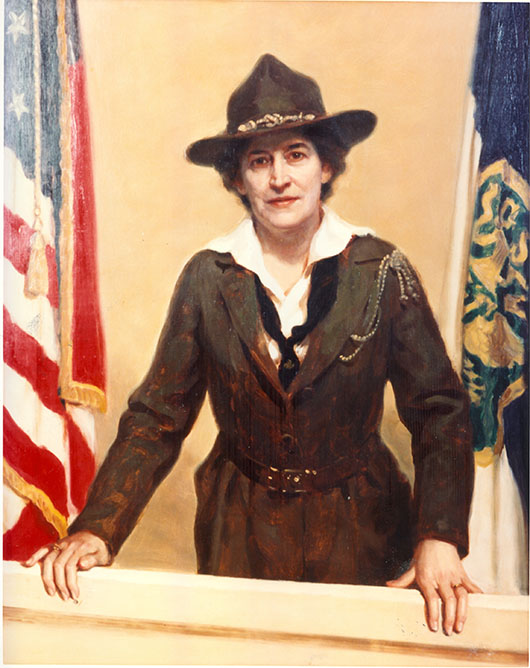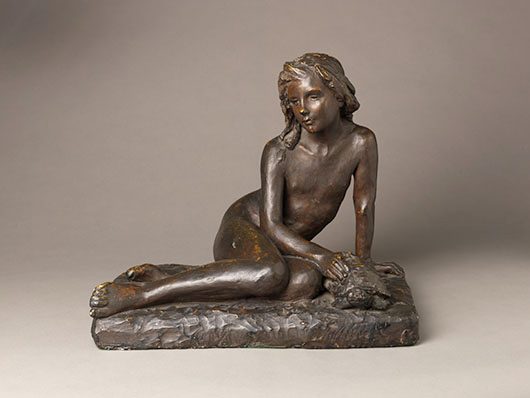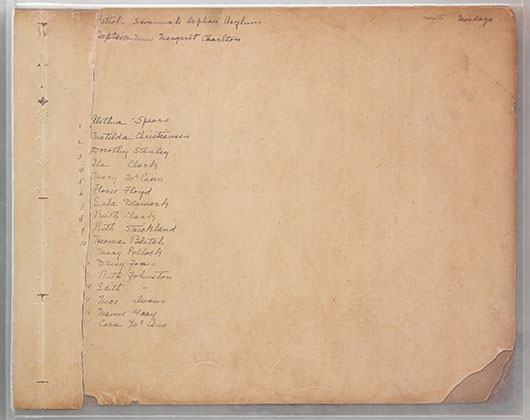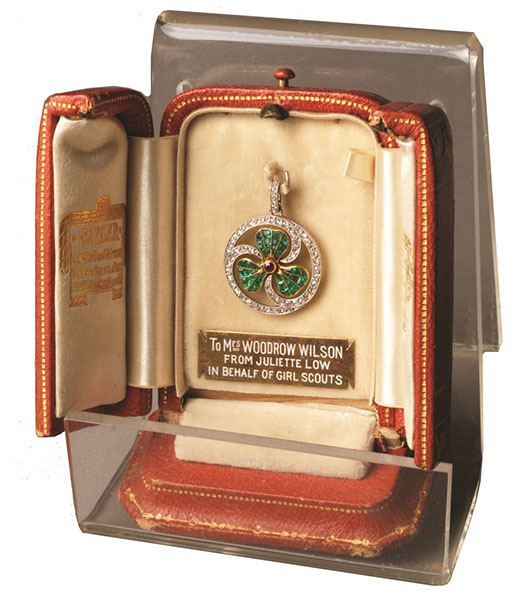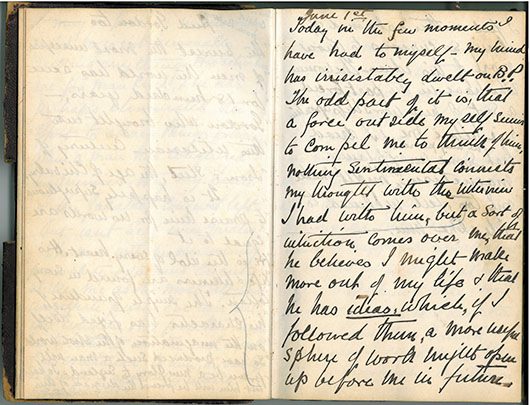
About the Collection
The Girl Scouts of the USA Collection includes a wide range of objects, documents, books, photographs, historic uniforms and fashion pieces, and original artwork. Many of the most important pieces of the collection are housed at the Juliette Gordon Low Birthplace and are used to tell her story. At the heart of our collection are original artifacts that tell the story of Juliette “Daisy” Gordon Low and the early years of the Girl Scout Movement she founded.
After Daisy’s death, friends and family members began to assemble a group of objects memorializing her life. In 1942, an exhibition was held at Girl Scout First Headquarters. Many of these artifacts were donated to the birthplace when it opened to visitors in 1956, and became the core of the birthplace collection.
To view the comprehensive collection of Girl Scouts of the United States, check out our archives here.
Collection Highlights
Portrait of Juliette Gordon Low
Oil on canvas
Albert Jonniaux
About 1919
Among our most significant collection pieces are portraits dating from the early 19th to the early 20th centuries of Juliette “Daisy” Gordon Low and her family. Daisy commissioned Belgian artist Alfred Jonniaux to paint this portrait of herself in Girl Scout uniform. In her will, she bequeathed this portrait to the Girl Scouts, and it hung for many years in the boardroom at New York headquarters. In 1957, GSUSA hired Jonniaux to alter the painting to bring it into conformity with new flag display guidelines recently passed by Congress. The flag bunting draping the balcony was painted out, and an American flag and Girl Scout flag were added to the background.
Girl with Tortoise
Painted plaster
Juliette Gordon Low
Early 20th century
The birthplace collection includes several examples of Juliette “Daisy” Gordon Low’s own artwork, including sculpture and paintings, drawings and illustrated letters, painted china and paper dolls, and even a pair of iron gates on which she executed the decorative metalwork. Daisy had a lifelong passion for the arts, which she shared with her Girl Scouts. Family and friends served as the main subjects of her paintings and sculptures. Daisy’s godchild, Daphne Williams, was the model for this piece.
First Girl Guide Register
1912–1913
Our archives hold documents and ephemera representing every era of Girl Scout history, including correspondence and records of the earliest years of the Movement, Girl Scout handbooks and educational materials from each decade, and original artwork and promotional items from the campaign to buy and restore the birthplace. One of our archival treasures, this register lists the names, addresses, patrols (now troops), and “Guide Mistresses” of the first Girl Scouts (called Girl Guides until 1913) in Savannah. Read more about early Girl Scouts here.
Thanks Badge
Cartier, after Juliette Gordon Low’s specifications
Diamonds, emeralds, ruby set in gold
1917
The birthplace collection includes Girl Scout uniforms and accessories spanning the history of the Movement. When First Lady Edith Wilson agreed to serve as Honorary President of Girl Scouts in 1917, Daisy presented her with this special jeweled Thanks badge. Since then, every First Lady of the United States has served as Honorary President of Girl Scouts of the USA. In use since Girl Scouts’ beginning, the Thanks badge is given to an adult whose ongoing commitment, leadership, and service have an exceptional, measurable impact on meeting the goals and priorities of a Girl Scout council or the entire Girl Scout Movement.
Diary of Juliette Gordon Low
About 1911
The birthplace archives house a collection of Daisy’s own letters, books, ledgers, and other documents, both personal and official. Included are letters between Daisy and family members dating to her girlhood through the founding of Girl Scouts, correspondence between Daisy and early Girl Scout staff and volunteers, and this journal assembled by Daisy around the time she first met Robert Baden-Powell, Founder of Boy Scouts. Into this diary, Daisy copied inspirational poems and several poems she had written herself, and wrote her thoughts on Robert Baden-Powell and the meaning of their friendship in her life. It’s a journal she seems to have shared with Baden-Powell: he painted a watercolor scene on one page of this book. Several pages of this diary are missing—cut out deliberately by an unknown hand.
